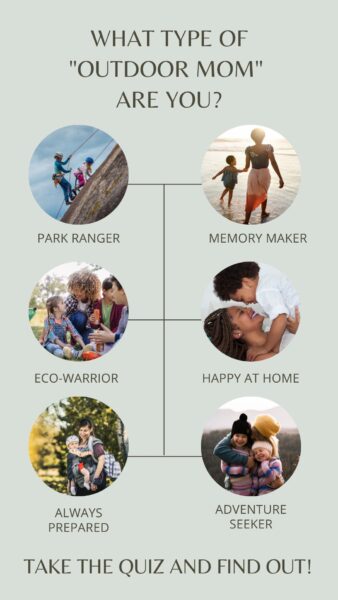Children have a natural affinity for the outdoors. They are drawn to it, fascinated by it, curious about it, and eager to explore it. But deep passion for nature and spending time outside is something that needs to be practiced and cultivated. Here at Run Wild My Child, instilling a love of nature in children is our passion. We’re committed to helping you raise healthy, happy, independent kids who love the outdoors. Today, Lissy Perna, mom of two and founder of Get Outside Cape Cod is here to share ways to help parents raise nature-loving kids.
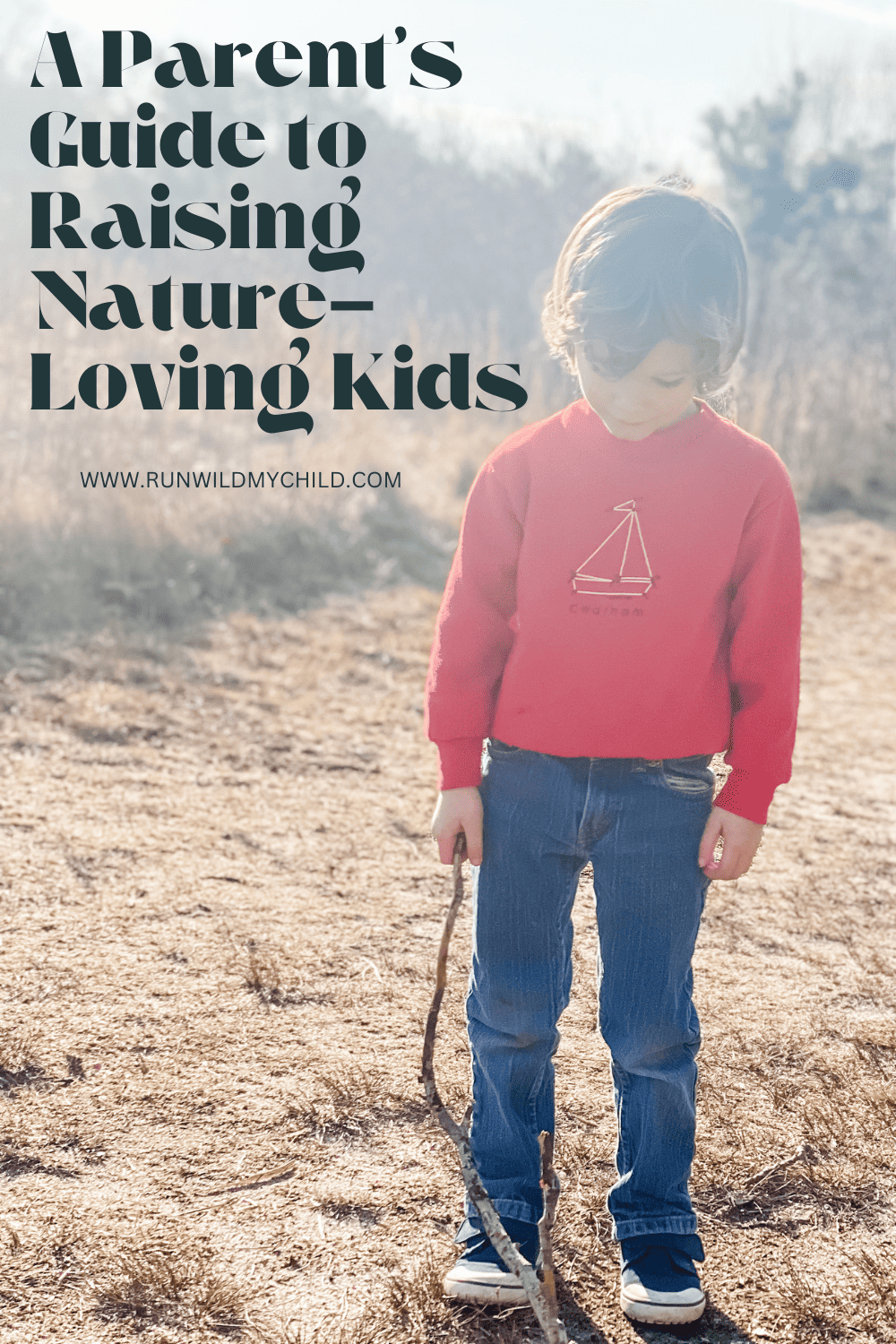
Tips for raising nature-loving kids
Today, our lives are inundated with (and dominated by) technology, screens, social media, and video games. As parents, we understand that our children are constantly exposed to this technology and will most likely use it for the rest of their lives. While this is inevitable (and necessarily always a bad thing), it’s our responsibility to balance that with time spent outside, unstructured free play and access to nature.
Bringing nature’s importance back into our children’s lives is no small feat and requires planning and intention. But, small actions taken by us in early childhood (and throughout childhood) can influence who they become as adults. Spending time in green spaces (and blue spaces) can have a lasting profound effect. Their love of nature will last a lifetime if we are consistent and intentional with our actions now, while they’re young.
Luckily, it’s not hard! Especially if you already enjoy being outside and appreciate the benefits of it. Below, I’ve compiled some ideas on how to raise nature-loving, outdoorsy kids that should be helpful for parents.
Start early with nature exposure
As soon as you’re able, get your children outside! It’s proven that children who spend time outdoors early on are more apt to want to spend time in nature throughout their lives. Those first nature experiences create a core connection to the earth.
You can expose small children and babies to nature by taking them for walks in a park or the woods on a public nature trail. Take little kids to the beach and let them splash in the water or play with the sand. You can even let them explore in your backyard, feeling the different textures of the grass and dirt. Even in urban settings, you can usually find a green space to spend time.
Nature is a full-body sensory experience (which is what makes it so special). Get their sense involved by asking them what they see and hear, encouraging them to notice all the various aspects of the natural world around them. Continue to bring them outside in all weather. You can foster their resilience by bringing them out in the rain, snow, or on chilly days as long as you dress them appropriately.
For more information, check out our posts on outdoor activities for babies and getting outside with toddlers.
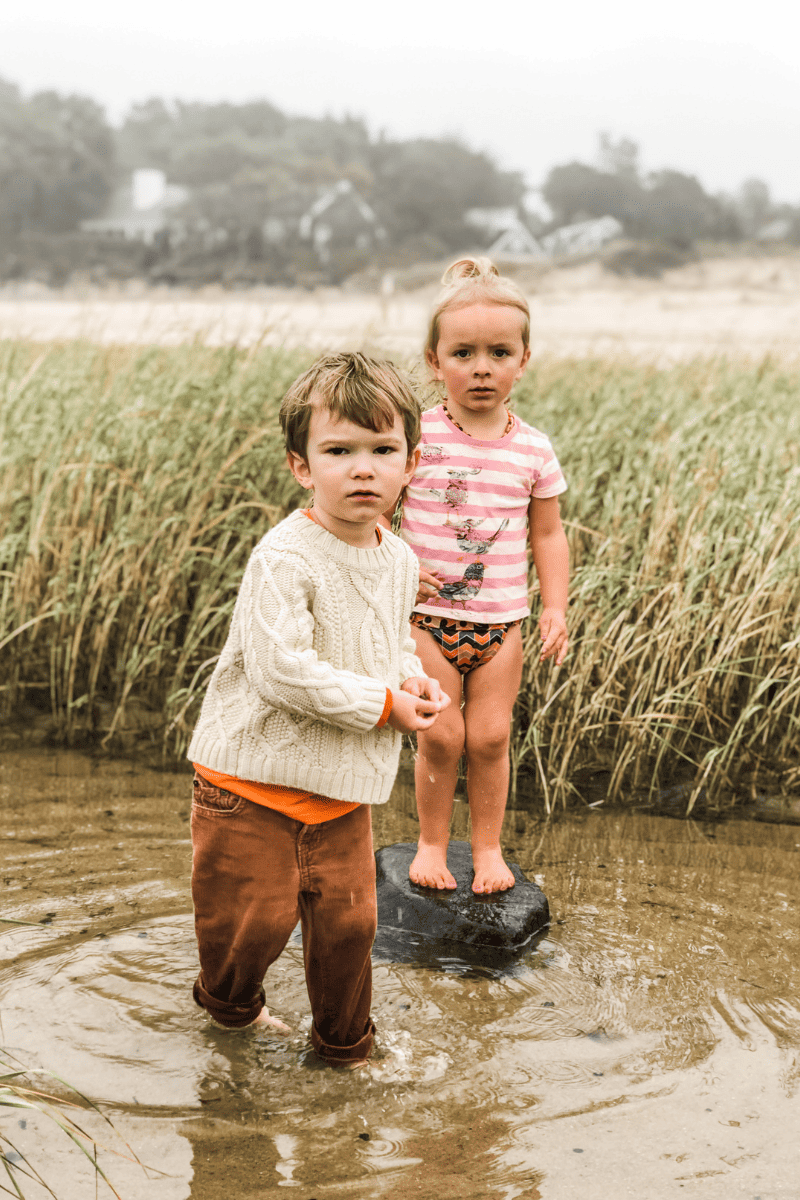
Make nature exploration fun
Your children will be more likely to want to play outside and in nature if they are having fun! So, how can we make their experiences more enjoyable and raise nature-loving kids? Here are a few ideas:
- Invite friends along on your adventures
- Try a new outdoor sport
- Plan a picnic in a nearby park (or have pizza delivered)
- Go for a neighborhood bike ride
- Splash in a creek
- Go on a family camping trip
- Fly a kite at the beach
- Plant a small garden together
- Try geocaching
- Go birdwatching (or whale watching!)
- Visit a nature preserve
- Go fishing
These sorts of activities will build a more profound love for nature and spark your child’s interest in a specific aspect of nature! Talk to your children when you’re outside in natural environments. Observe how they act, what they’re curious about, what excites them, and figure out how to do more things in that area. Maybe your kids are thrill-seekers and love jumping off rocks or climbing trees. Or perhaps they love water and stomping through a creek. Tailor their outdoor experience to what would be fun for them.
My children have developed a passion for critters after our repeated nature walks through the woods. Whenever we explore outdoors, my kids love to look for snakes, turtles, frogs, salamanders, crabs, and other small creatures. They have learned all about the species in our area and probably know more than most adults about these small but essential animals.
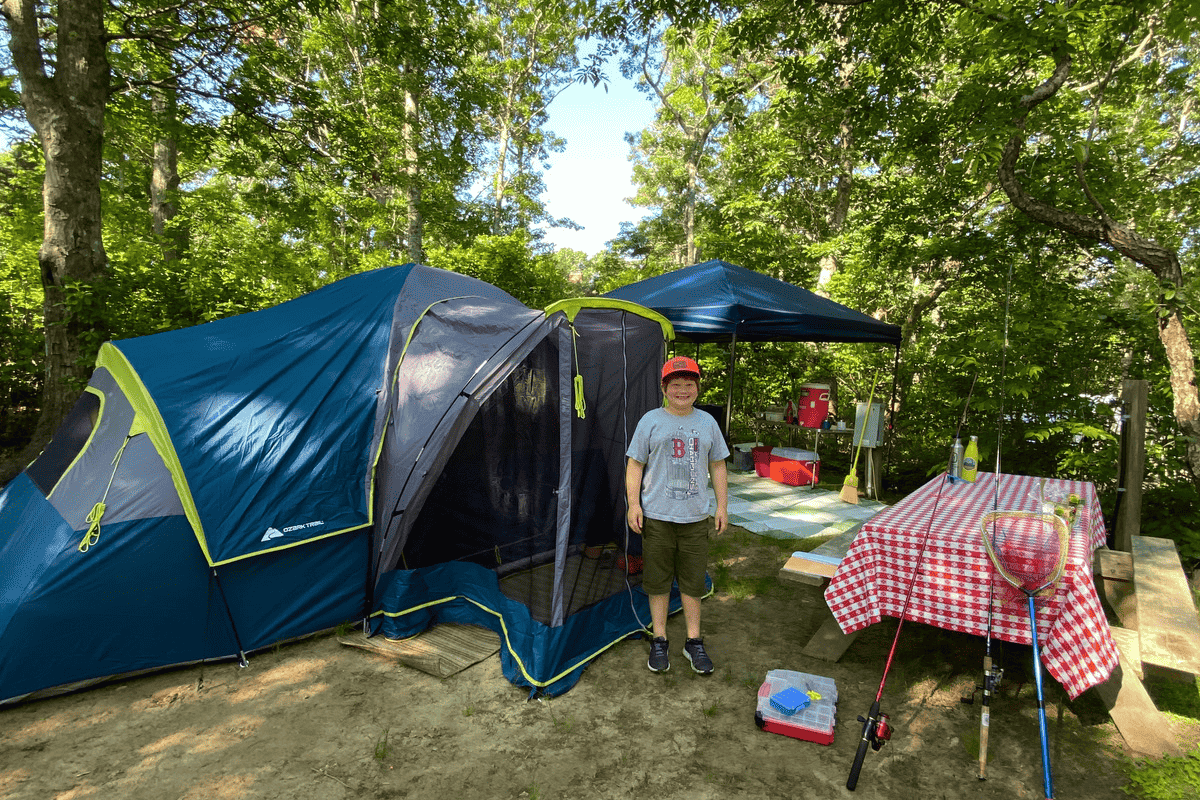
Follow their lead
When trying to raise nature-loving kids, we don’t want to be forceful or make outdoor time feel like a chore. We want to be encouraging to get outside and have fun in nature, but not demanding. Don’t push it or force it on your child. If some days your child refuses to play outside or doesn’t enjoy a particular activity, remember that you can always try again another day or attempt a different activity. However, also know that oftentimes, getting out the door is the hardest part, and kids (and parents) will have fun (and be happy you did it) once you’re outside.
There is more than one way to enjoy nature, and everyone has their favorite. The best way to get one kid out the door may not work for the other. That’s ok (and natural). Take turns. Let your children choose activities that they want to do or try. One child might enjoy riding bikes or swimming outside, while another might enjoy a nature walk through your local park or exploring the woods. Both things are beneficial to their health and well-being, and both still expose them to the natural world.
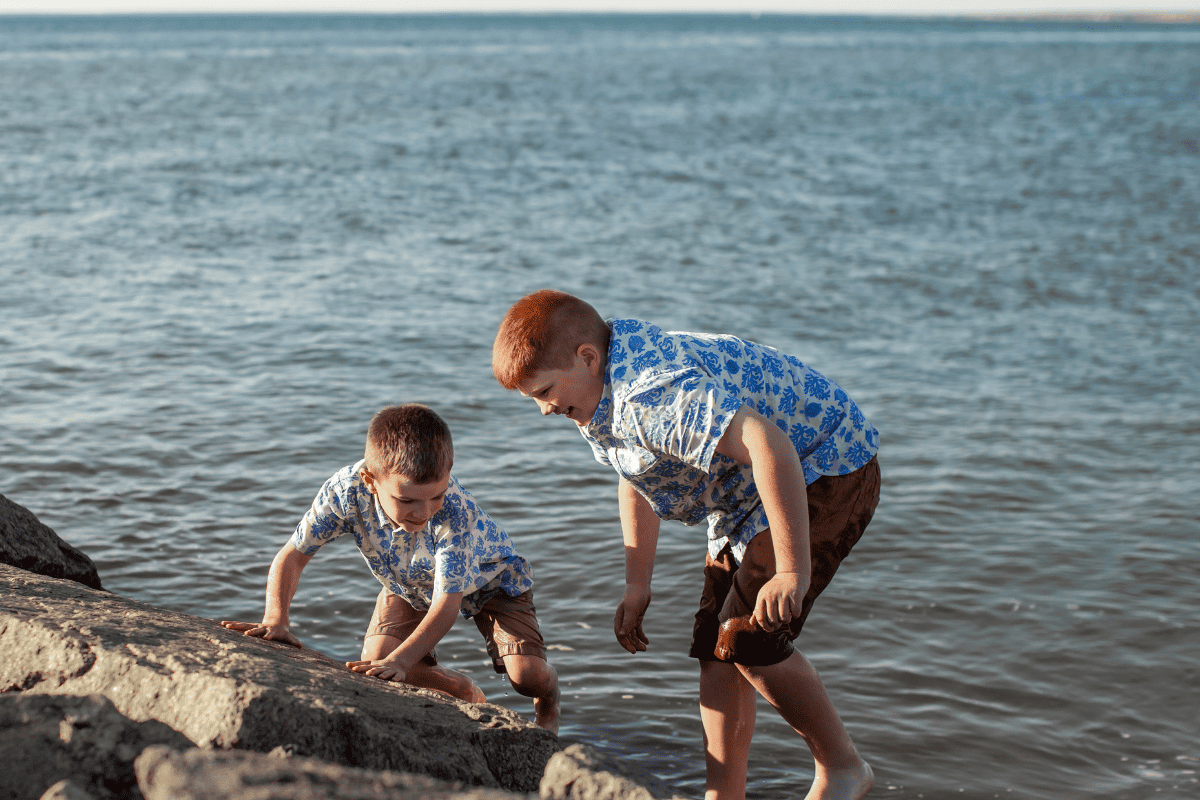
Provide opportunities for adventure
When raising nature-loving kids, we should provide opportunities for adventure. By “adventure,” I don’t mean it has to be summiting a mountain, sky-diving, or any grand experience. Adventure, in this sense, is more about providing opportunities for fun things to happen outside in nature. And then letting them play out, at your children’s pace.
Adventures for young children could be as simple as exploring a creek, climbing a tree, or building a fort out of fallen limbs. Adventures for older children may be more like mountain biking, rock climbing, or kayaking. These self-directed adventures develop your child’s physical skills, increase their confidence and self-esteem, and, once again, solidify their love of nature.
Share your outdoor stories, memories, and photos
Most kids LOVE seeing photos of themselves and those they love. There’s no better way to keep the fun from your outdoor adventures going than through storytelling and photos. My kids love looking back on our outings and adventures, retelling the story of what we did, funny things that happened, and remembering bits and pieces I’ve already forgotten about. They don’t seem to remember the meltdowns, the tears, the whining, the bribery, or the push to get out the door. They remember the FUN. And even if the outing wasn’t that exciting the first time around, they’re already talking about going back and what they’ll do next time! Kids are great like that. So, take the photos, share them with the kids, tell the stories, relive the experience. Keep the fun going!
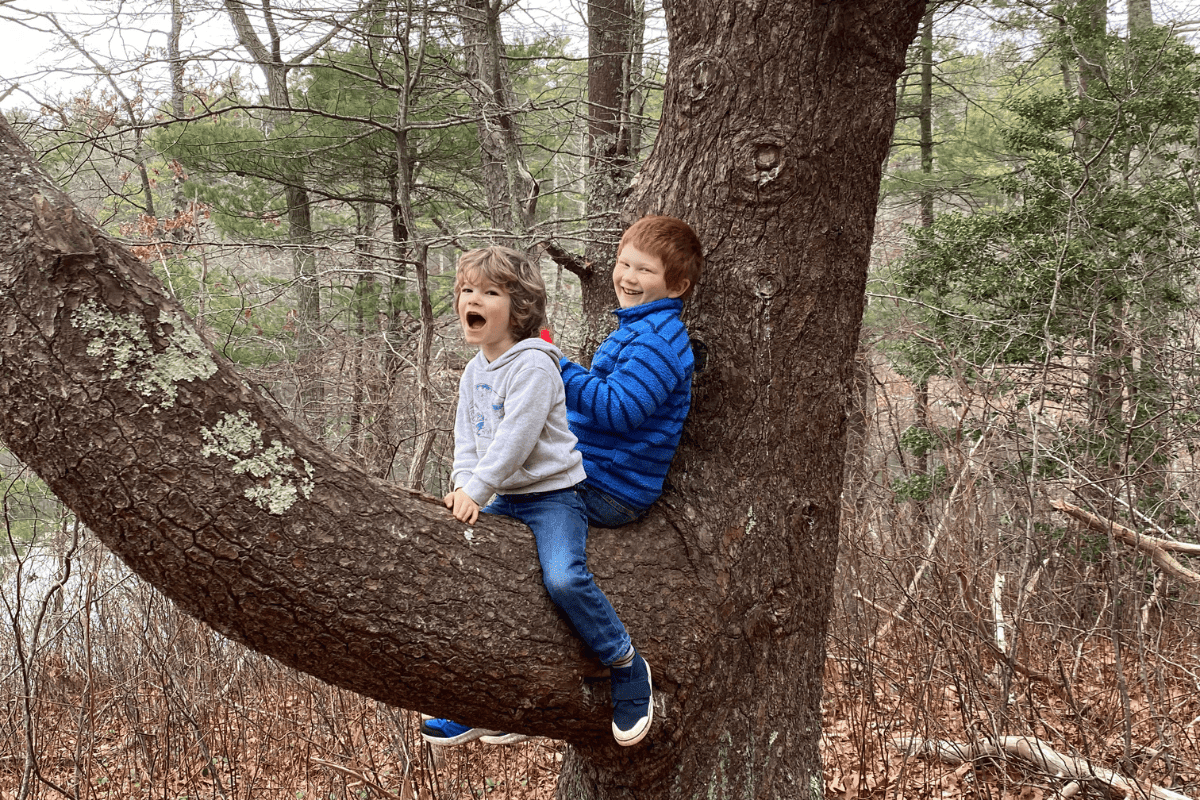
Encourage your nature-loving kid’s curiosity
Kids’ minds are weird and wonderful! If your child is curious about a specific aspect of nature, embrace it! Is your child interested in identifying birds? Get them a pair of binoculars and go to the library and borrow a bird field guide specific to your location. Bring them to a nature center with displays or presentations on birds. Set up a bird feeder in the backyard (or a bird bath). Try a bird whistle.
There are so many ways to support and encourage your child’s interests in general, specifically regarding the wonders of nature. These experiences will foster your child’s relationship and understanding of the natural world and teach them how to learn more about a subject they are interested in. Hey! You might even learn a thing or two!
Your local library is a great source of inspiration for this. Be sure to check out our full post on 10 ways your public library can help you get outside.
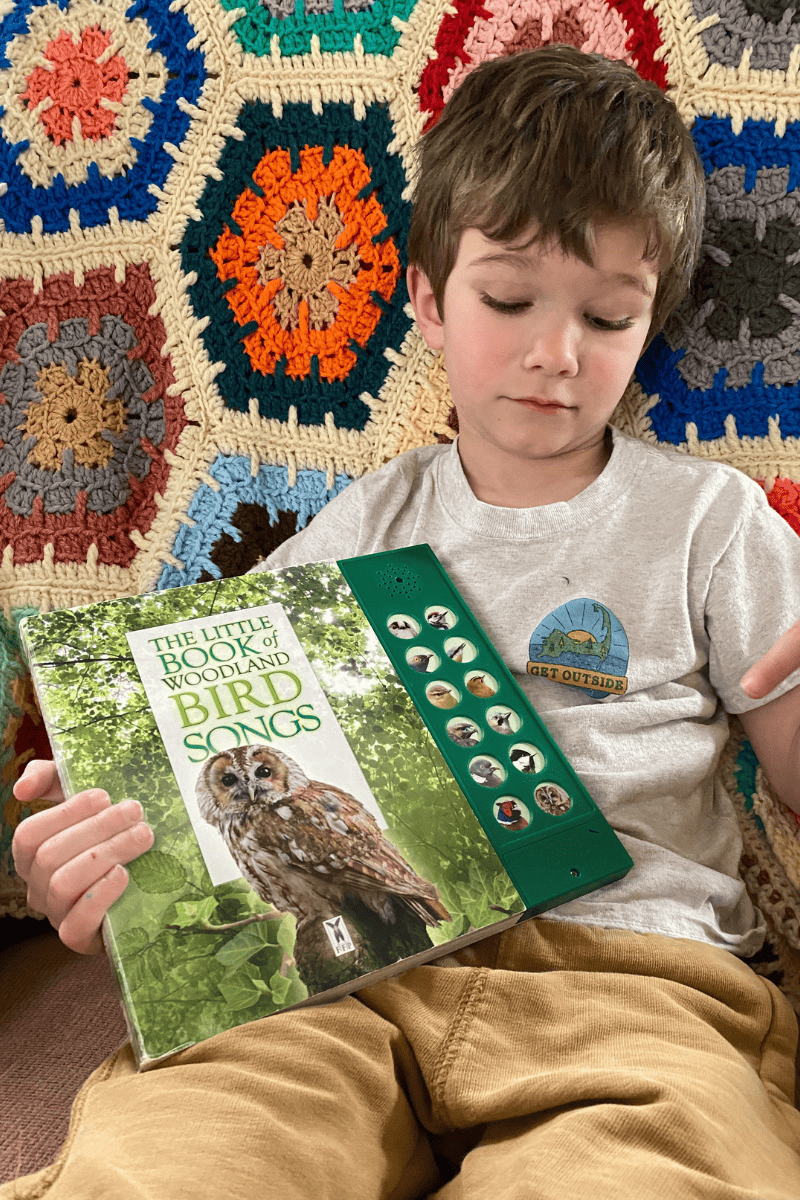
Be a nature-loving role model
It’s crucial to remember that children learn by observing. Kids observe their surroundings and the people around them (and how they react to their surroundings). Therefore, you must set a positive example for your kids to follow. If you want to raise nature-loving kids, you have to show your children how much you value nature in any way you can.
You can do this by volunteering for a nature-based organization, picking up trash at the beach or on trails, respecting wild animals, and even simply choosing to spend time outdoors. Also, making environmentally conscious decisions and explaining them to your children can make a big impression. I vividly remember my father explaining how composting and rain barrels worked when I was a child. It made a significant imprint on me to hear my father’s passionate explanations of such environmentally friendly lifestyle choices.
You can also model the behavior you want to see them use in nature. For example, be curious and excited about bugs and not grossed out or scared (even if you are grossed out or scared!). Let them touch nature and be a part of it without discouraging them from getting dirty. Let them climb trees or rocks (to their ability) and take healthy risks, modeling safe choices without instilling fear. When kids see us comfortable in nature, they’re comfortable, too.
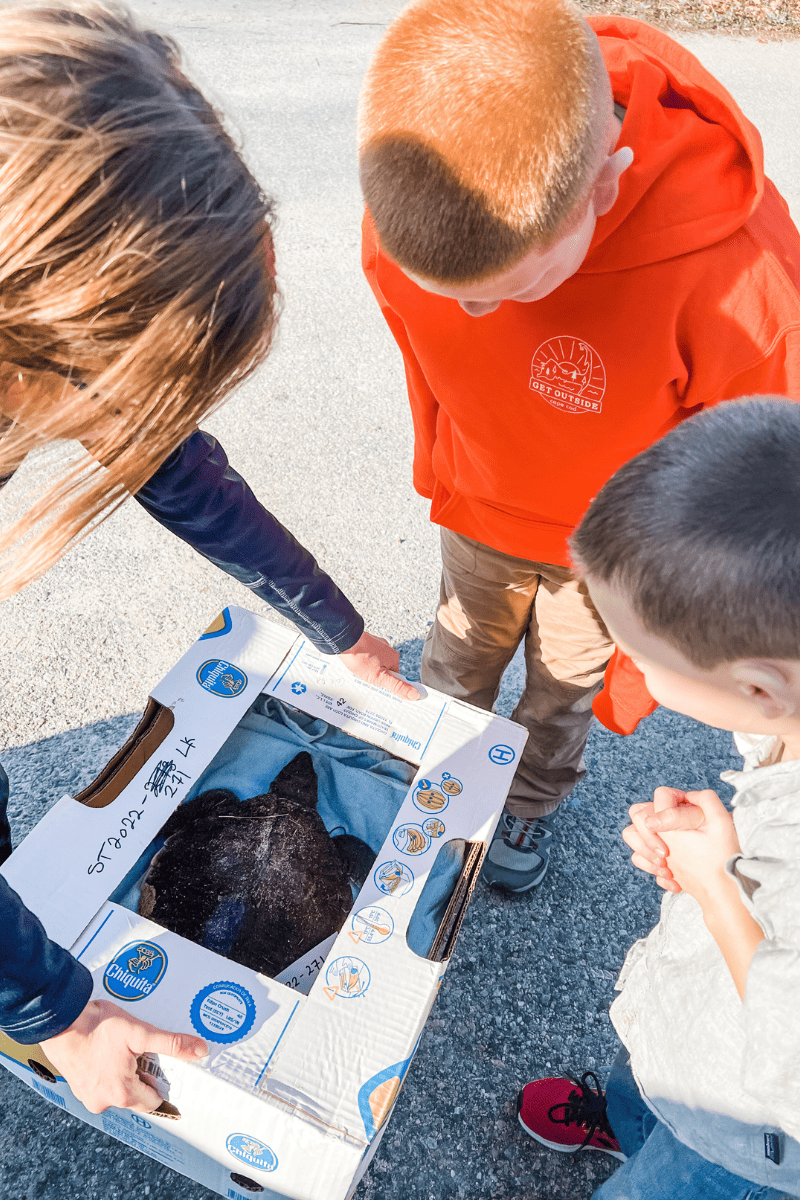
Embracing technology (yes, I said it)
This idea may seem counterintuitive, but there are ways that you can use technology to help raise nature-loving kids. There are many educational apps, such as Merlin (for identifying birds), Plant ID (for identifying plants), and All Trails (for finding and tracking nature walks near you). As a family, we watch nature documentaries on TV. You can stream many for free; we particularly like the PBS nature documentaries.
Children also might like to use a digital camera to document their nature adventures or to start a new nature photography hobby. Or they could use a metal detector to hunt for treasure outside. While these ways of experiencing nature while using technology can be helpful, we must be mindful that we balance screen time with outdoor time.
For more information on this topic, be sure to check out our full post on using technology to get kids outside.
Creating a nature-centric home
You can do many small things within your home to create a more nature-friendly environment. Encourage bird watching by installing a bird feeder outside your window and setting up a birdwatching station indoors. These suction cup ones are great for up-close birdwatching.
Bring plants indoors if you have a green thumb. This action is also an excellent opportunity to instill a sense of responsibility by assigning “water the plants” as a chore.
Start composting in your kitchen with a small bin near your trash can. You can teach your children which food scrap items can be composted and how to accomplish that. These little changes will add to your nature-loving kid’s relationship with the natural world.
Here are 20 ways to incorporate more nature into your daily routine.
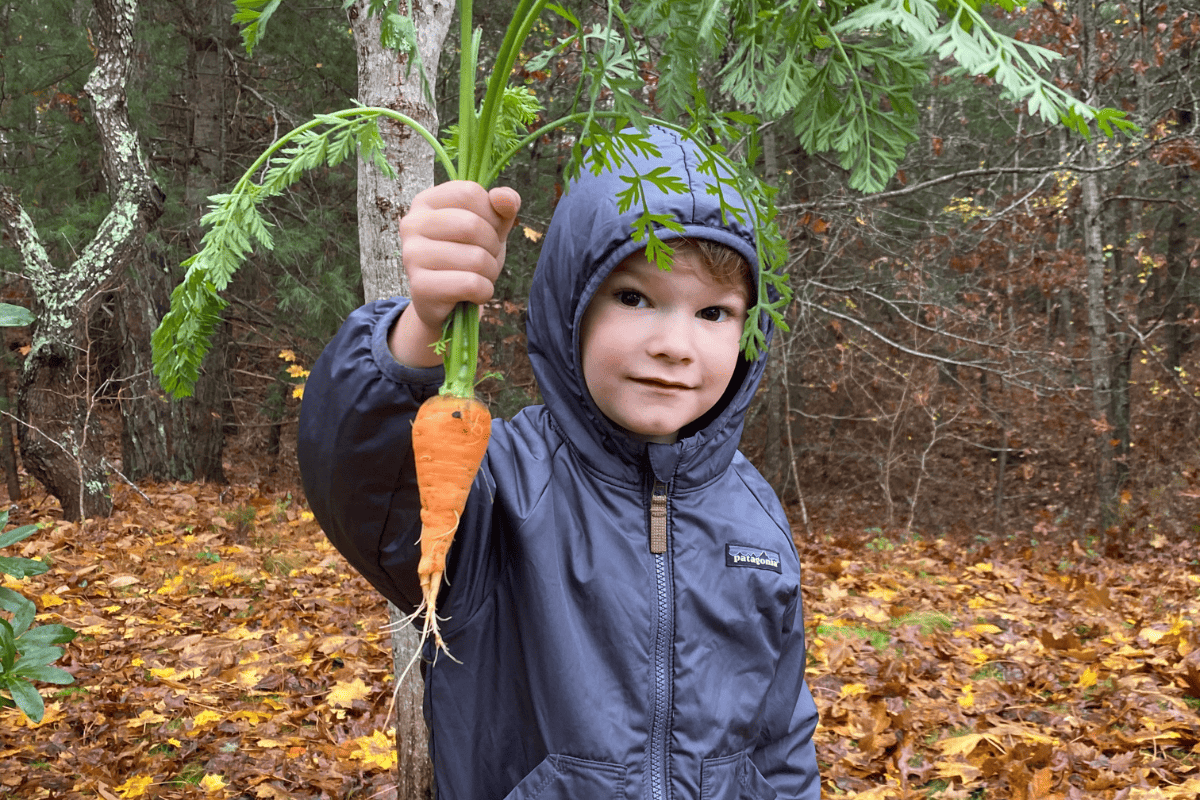
Participate in outdoor education
Take advantage of outdoor educational programs or schools in your area! Many forest schools or camps are available nowadays, and the children spend most, if not all, their time outdoors. This extra time spent in nature is so beneficial. Where we live, there are few options for full-time outdoor education, but many outdoor summer camps.
We have also had luck with our local Audubon centers, garden centers, botanical gardens, and nature centers, which provide outdoor classes throughout the year. If you don’t have these options, consider starting a nature club with your child’s school or friends. This extra time spent outdoors will deepen your child’s love for the environment and help you raise nature-loving kids.
Start outdoor family traditions
Kids love having something to look forward to each year and outdoor traditions can be anything you want them to be. Consider starting some fun outdoor traditions with your family that celebrate occasions throughout the year. For example, maybe you could go for a hike on the first day of the new year or on Black Friday. Maybe you have an outdoor dinner to celebrate the change of the season, or decorate a tree outside for winter solstice. Consider a night hike in the spring to hear the frogs, or on a heart hunt hike for Valentine’s Day. Start a monthly full moon outing for your family. You could perform outdoor acts of kindness in the week leading up to Thanksgiving or a fun outdoor egg hunt for Easter. Make the outdoors an integral part of the celebration and your kids will be more likely to love being out there!
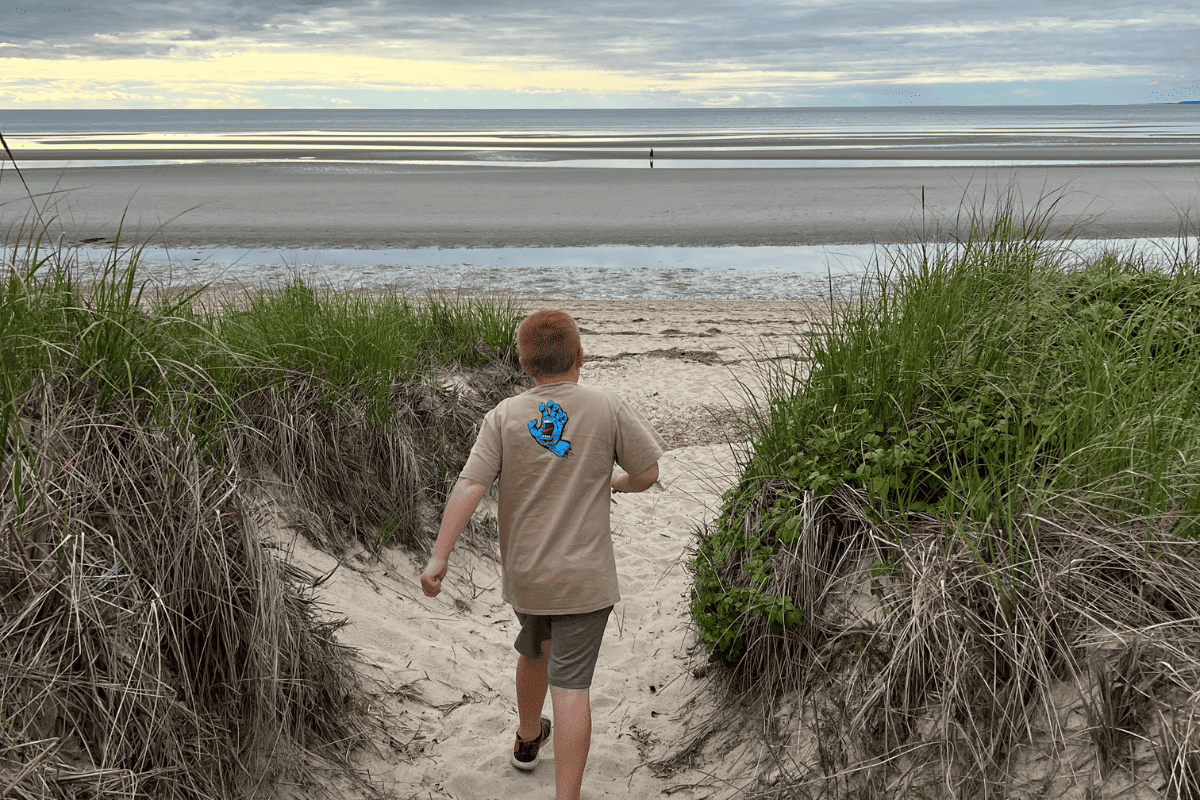
Encourage outdoor physical activity
Encouraging physical activity with your children is always a focus for parents. Why not focus on moving that physical activity outside? This concept is not only beneficial for your child’s physical health, but it can deepen their connection with nature as well. My children love to ride their bikes, and we often visit our local state park to ride the bike paths through the woods. Another way we enjoy physical activity outdoors is to go swimming in the local ponds or ocean. Consistency with these activities creates a healthy habit that your children will carry on with them for life.
Here’s a great resource on how to exercise outdoors with kids.
Let them get messy
Children benefit from messy play, particularly muddy play. Messy play has also been associated with a range of benefits, including increased happiness, improved well-being, stronger immunity, and a deeper connection with nature. On top of the benefits for their health, it’s just plain fun to get dirty! It’s a full sensory experience, especially for little ones who are eager to discover everything they can about their environment.
Let your kids get messy, wet, and dirty when they’re playing outside! Let them be kids without worrying about ruining clothes or getting dirty. Dress them in clothes they can have fun in so no one has to worry to stop playing. Bring an extra set to change into (and a towel). They’ll come to think of nature as a place where the fun happens!
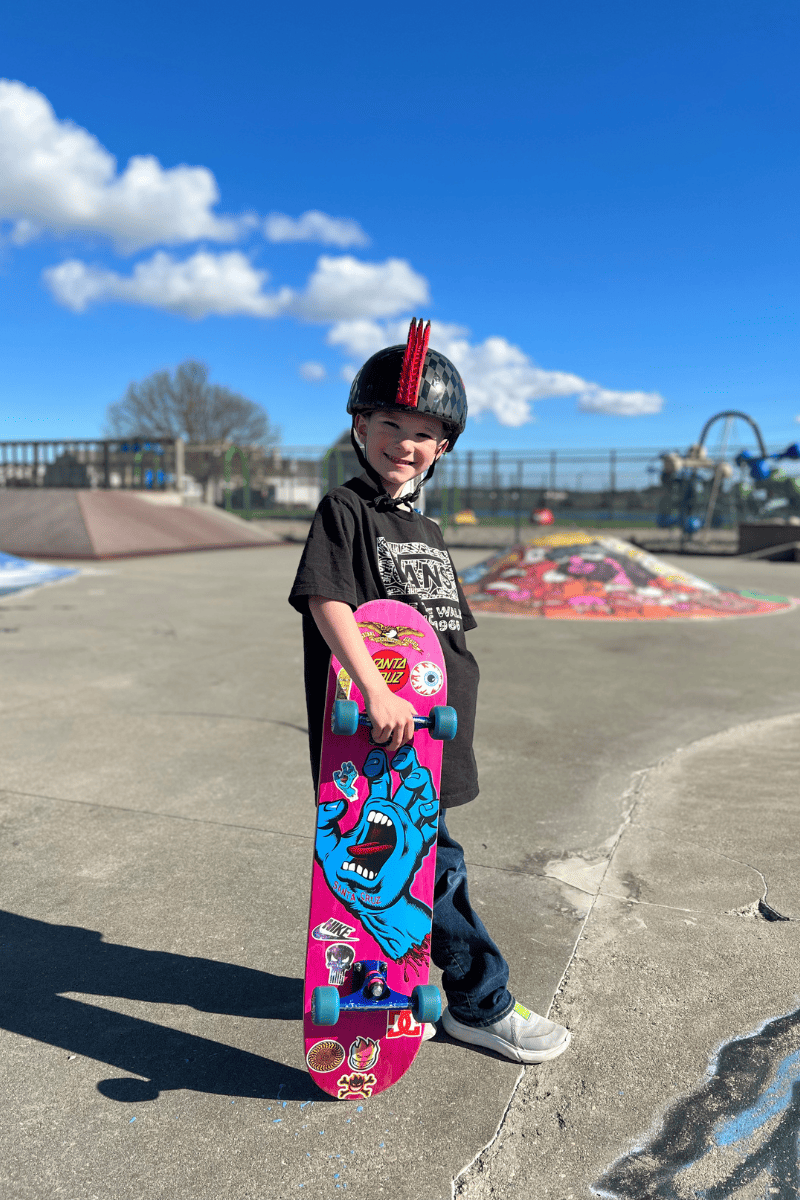
Read them books about nature
There are hundreds of both fiction and non-fiction children’s books about nature. Any of these books will help build on your nature-loving kids’ bond with the natural world. I recommend visiting your local library, where a librarian could give you recommendations based on your child’s specific interests. This suggestion is a great, free way to learn more about nature. Bonus points if you read these books outside!
If you need a list of recommendations to get you started, be sure to check out a few of these nature book recommendation posts:
- Most Beautiful Nature Books for Kids
- Best Educational Nature Books for Kids
- Books for Raising Little Naturalists
- Fall/Winter Outdoor Nature Books
- Spring/Summer Outdoor Nature Books
- Exploration & Adventure Chapter Books
- Holiday Themed Nature Books for Kids
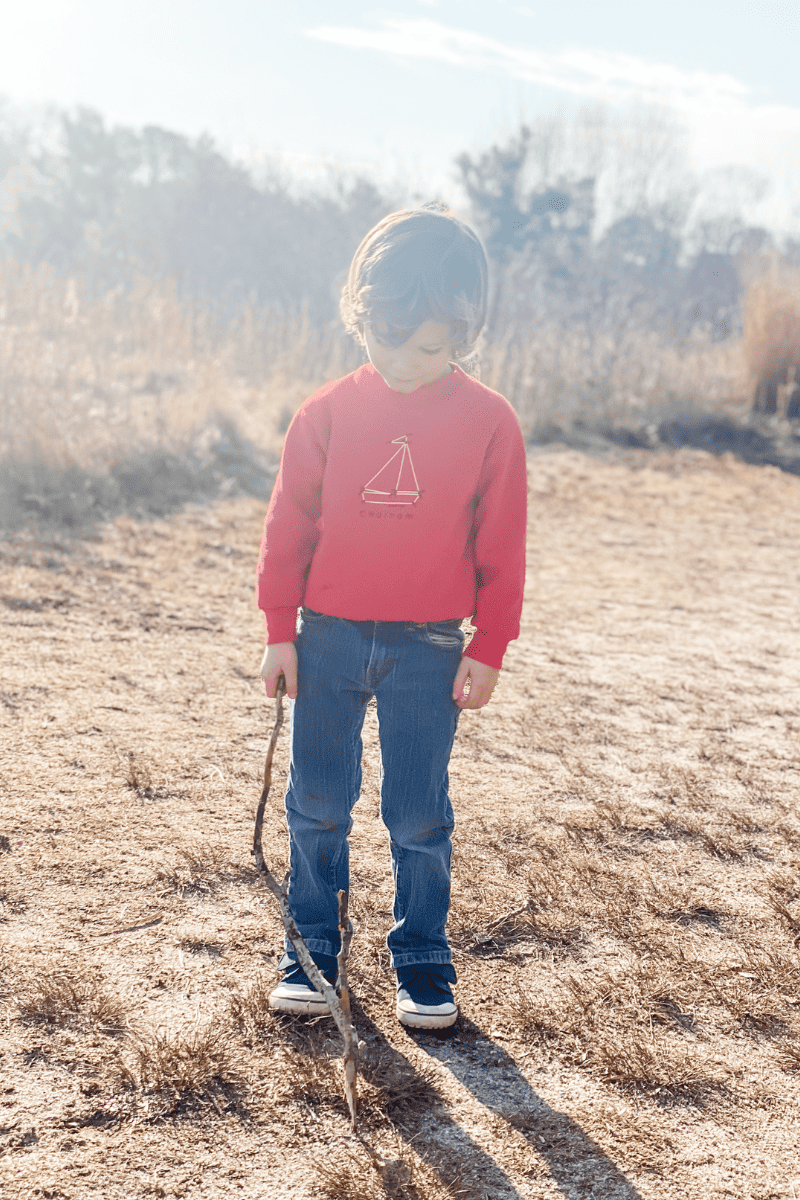
Find adventure friends
Surrounding yourself with like-minded people and friends who love nature can make a huge difference! Finding other parents who also want to raise nature loving kids and enjoy the outdoors motivates us to keep getting outside, try new things, and go on more adventures. It’s not only good for the kids, but it’s good for the parents, too! Spending time outside in your area with friends can be an excellent way to foster a sense of connection and appreciation for your community. From exploring local parks and hiking trails to discovering hidden gems and natural wonders, spending time outside strengthens the bonds you have with each other, as well as makes you more appreciative of where you live (which is good for your mental health).
Sometimes, we are lucky, and adventure friends are found and made easily. Other times, our circumstances might make it harder to create these types of relationships. We’ve got a great post on how to find (and be) an adventure friend.
Instilling a love of nature in your child
Children are born with a beautiful, organic sense of wonder. You can help nurture their curiosity of nature and love of the great outdoors in so many small ways, including asking them thought-provoking questions, encouraging adventure, modeling outdoor interest, and praising their explorations. Your positive influence and support of your child’s curiosity will only strengthen their bond with nature, developing a lifelong love of nature. Together, we can help children overcome nature deficit disorder and put some fun and wonder back into childhood.
I hope some of these ideas will help you in raising nature-loving kids. Our children are the future, and it’s looking bright with caring and proactive parents like you!
How are you raising a nature-loving child?

About the author
Lissy lives near the ocean on Cape Cod, Massachusetts, with her husband, 2 rambunctious boys, and an ever-growing number of pets. She grew up walking nature trails and finding joy in the beauty of nature. She now shares that love for local adventures with her community through her blog, “Get Outside Cape Cod.” Lissy knows that everyone can benefit from spending more time outdoors and wants to inspire and support families to do just that!
You can find more from Lissy in the following online locations:
Instagram: @getoutsidecapecod
Website: Get Outside Cape Cod
Facebook: @getoutsidecapecod
RWMC Posts: Lissy Perna

